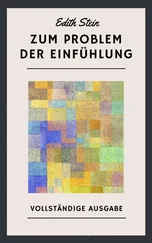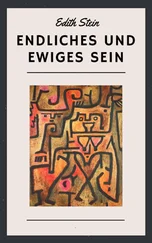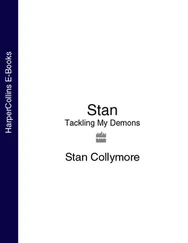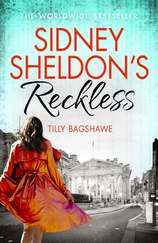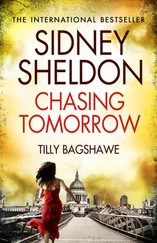“Do you know how far it is to Wólka from here? They cut down my tree, my land’s gone, and I don’t know where I am.”
Wólka? Wólka? Drzazga thought and thought and he was on the point of asking him, which one? Because Wólka’s a common name, there’s one in every district. Then all at once the guy jumps up and rushes off. All he remembered was he was really young and his hair was blond.
Blond and really young, it must have been “Grasshopper.” The hair on his chin was just beginning to sprout, he envied “Kuba” because Kuba had a beard like a dog’s coat, plus he shaved with a razor. He always held Kuba’s mirror for him when he was shaving, and in return Kuba would shave Grasshopper once a week. He’d lather him up nice and thick from his throat to his nose, almost up under his eyes, so it would look like he had a full beard like a grown man. Then he’d strop his razor, and he’d go about it wholeheartedly, like he was shaving a real man. He’d even pluck a hair from his own mop and use it to test whether the razor blade was good and sharp. And though the razor didn’t scrape against Grasshopper’s beard, like it was just wiping off the lather, Kuba would say to make him feel better:
“There, you hear it scraping? It’s starting to grow in. You’re gonna have a fine beard, thicker than mine.”
But Grasshopper never lived to see his beard. In return for shaving him, he’d taught Kuba how to make the sound of a turtledove. After Grasshopper died, Kuba would make turtledove noises over and over till it drove you nuts. Kuba had wanted to learn how to sound like a turtledove because he had an ash tree in front of his house that turtledoves nested in. And he figured that when he got home he’d be most likely to find out from the turtledoves what had really been going on while he was gone — in the village, at home, with his wife and children. Grasshopper wanted to teach him the stork as well, when you’re down you can cheer yourself up by clattering like a stork, Kuba. But no, he was only interested in turtledoves. He wanted to teach him the skylark, you can sing to yourself while you’re plowing, Kuba. No, only the turtledove. What did you need to know the truth for, Kuba?
Because there wasn’t a bird Grasshopper couldn’t imitate. He could do a blackbird, a cuckoo, a kite, a nightingale, an oriole, a starling, a woodpecker, a roller, a bullfinch, whatever you wanted. He could do a magpie when it was going to rain, and a different magpie when it was a sign of something bad about to happen. A rooster, he crowed better than a real one. We’d be stationed deep in the woods but you’d think there were houses close by, because roosters kept crowing. And they crowed one way for midnight, another way when they’d been with a hen. He could croak like one crow or like a hundred when a flock of them roosts in the tops of the poplar trees, and like a thousand when they’re gliding across a deep blue sky at sunrise. Sometimes the guys would name birds that I didn’t even think existed. He could do every one. One of the men in particular, “Pistol,” he was a biology teacher. He’d come up with all kinds of weird names, I’d sometimes say to him, shut the hell up, Pistol, those aren’t real birds. I know a good few kinds of birds myself, but those ones I’d never heard of. Stuff like whimbrel, godwit, ruff, bunting. He swore they lived in the woods in Poland. Maybe they do, why would you not believe a teacher.
I was shot three times that day, twice in the side and the third one in the belly. They weren’t deep wounds, fortunately, they mostly just grazed the skin. I holed up in the attic of the presbytery at Płochcice. Not many people thought I’d pull through. They came to visit me, the doctor and the priest in turn. The doctor just shook his head like he couldn’t believe I was still alive, while the priest kept checking to see if it wasn’t time for last rites. It made me so mad that in the end I started making nice with the priest’s housekeeper. She gave me one of his old cassocks, a cloak, a hat, shoes, shirts, pants, even a prayer book, and one day at dawn, when everyone was still asleep I slipped out of the presbytery dressed as a priest.
I’d been home not so long before, in the summer during the harvest, so they weren’t expecting me. But they could have heard what went down in Maruszew. Besides, I had a yen stronger than ever to see mother. It was thirty-five miles or more from Płochcice to our village, plus I had to choose a route so I’d meet as few people as possible, I had to avoid forest roads and paths and other villages. And it wasn’t enough that I was all bandaged up, I also felt awkward in the priest’s outfit. I regretted not having dressed as a regular person, it’s just there weren’t any other clothes at the presbytery. As it was, the housekeeper had given me all that stuff in fear that she was committing sacrilege. It was only when she saw me dressed up that she said:
“May God lead you, and may he forgive me.”
It was another matter that the priest was a bit shorter than me, and bigger in the belly, but in that place I couldn’t tighten the clothes because that’s where my wounds were, so I looked a bit like I’d borrowed an outfit from my younger brother. The sleeves barely reached past my elbows, the cassock came halfway up my shins, and the tightest part of all was across the shoulders. By the time I’d gone a few miles I was as exhausted as if I’d been carrying a heavy weight. On top of that, at every step it felt like someone was sticking a bayonet in my side, from the wounds. So I couldn’t even concentrate and think about the things a priest ought to think about. And all the while I had to hold myself straight like a priest, and have a cheerful expression on my face, like I was thinking about God. Plus, every other minute someone came along and greeted me, Christ be praised, and you have to raise your hat every time and answer, for all time. Though somehow I managed. What was worse, quite often when someone saw a priest coming toward them they’d immediately stop and wait, they were pleased as punch that chance had plonked a priest in their path for them to talk to. What do you think, father, how are things going to turn out for us? Did you hear what those villains did over at Maruszew, father, they hung them all along the Kawęczyn road. Where’s God in all that, father? How can he look down calmly on such things? And you’d have to make stuff up, tell lies about God when you had no idea what you were doing, say that his judgments are inscrutable, that all we can do is pray for the folks from Maruszew. Or someone asks you, I guess you’re from a different parish, father, or have they sent us a new curate.
One farmer came by in his wagon, I even turned my head away, but he pulled up, whoa, and said he’d give me a ride, because he couldn’t allow a priest to go on foot. Whether I liked it or no, I had to get in. Then in the wagon he asks, have you come from far? Actually your face is sort of familiar, you look a bit like this guy that they say died at Maruszew. The parish ought to be ashamed they can’t afford a decent cassock for you.
The whole thing tired me out even more than the wounds. I got as far as Mierniki, there I went to a fellow I knew and changed into ordinary clothes. Besides, what would mother have said if she’d seen me dressed as a priest? I spent the night there and continued on my way. The man I stayed with wanted to give me a bicycle. I tried, but riding was worse than walking. A couple of times someone gave me a ride a bit of the way. I wasn’t a priest anymore so I wasn’t afraid to talk about why I was on the road. I’d say I was going to see about a horse, that most of all I was hoping for a dapple. Another time I said I was setting up as a beekeeper and I was looking for a good queen.
Читать дальше


